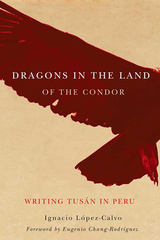The Body as Capital
Masculinities in Contemporary Latin American Fiction
The University of Arizona Press
Through economic liberalization and the untethering of labor and production markets, masculinity as hegemon has entered a crisis stage. Renegotiated labor and familial orders have triggered a widespread cultural renegotiation of how masculinity operates and is represented. This holds especially true in Latin America.
Addressing this, Vinodh Venkatesh uses contemporary Latin American literature to examine how masculinity is constructed and conceived. The Body as Capital centers socioeconomic and political concerns, anxieties, and paradigms on the male anatomy and on the matrices of masculinities presented in fiction. Developing concepts such as the “market of masculinities” and the “transnational theater of masculinities,” the author explains how contemporary fiction centers the male body and masculine expressions as key components in the relationship between culture, space, and global tensile forces.
Venkatesh includes novels by canonical and newer writers from Mexico, Central America, the Caribbean, Peru, and Chile. He focuses on texts produced after 1990, coinciding with what has popularly been termed the neoliberal experiment. In addition to probing well-known novels such as La fiesta del Chivo and La mujer habitada and their accompanying body of criticism, The Body as Capital defines and examines several masculine tropes that will be of interest to scholars of contemporary Latin American literature and gender studies. Ultimately, Venkatesh argues for a more holistic approximation of discursive gender that will feed into other angles of criticism, forging a new path in the critical debates over gender and sexuality in Latin American writing.
Addressing this, Vinodh Venkatesh uses contemporary Latin American literature to examine how masculinity is constructed and conceived. The Body as Capital centers socioeconomic and political concerns, anxieties, and paradigms on the male anatomy and on the matrices of masculinities presented in fiction. Developing concepts such as the “market of masculinities” and the “transnational theater of masculinities,” the author explains how contemporary fiction centers the male body and masculine expressions as key components in the relationship between culture, space, and global tensile forces.
Venkatesh includes novels by canonical and newer writers from Mexico, Central America, the Caribbean, Peru, and Chile. He focuses on texts produced after 1990, coinciding with what has popularly been termed the neoliberal experiment. In addition to probing well-known novels such as La fiesta del Chivo and La mujer habitada and their accompanying body of criticism, The Body as Capital defines and examines several masculine tropes that will be of interest to scholars of contemporary Latin American literature and gender studies. Ultimately, Venkatesh argues for a more holistic approximation of discursive gender that will feed into other angles of criticism, forging a new path in the critical debates over gender and sexuality in Latin American writing.
Will be of extreme use in the current critical debates over gender and sexuality in Latin American writing, and I see it as a particularly useful reference work.’—David William Foster, author of Latin American Documentary Filmmaking: Major Texts
Will be of extreme use in the current critical debates over gender and sexuality in Latin American writing, and I see it as a particularly useful reference work.’—David William Foster, author of Latin American Documentary Filmmaking: Major Texts
A valuable contribution to the literature on recent Latin American fiction and on masculinity more broadly.’—Choice
A valuable contribution to the literature on recent Latin American fiction and on masculinity more broadly.’—Choice
An invaluable resource for scholars interested in twentieth- and twenty-first-century Latin American literature and the impact of the neoliberal era on masculine bodies.’—Crossed Disciplines
‘[Venkatesh’s] literary corpus and varied conceptual framework is the result of diligent research, and he clearly selected works, theories, and even created concepts . . . that best showcase how a reshaping of ‘the Masculine’ through a commodification of masculinities occurs (or not) in turn-of-the-century dialogic narratives.’—Canadian Journal of Latin American and Caribbean Studies
An invaluable resource for scholars interested in twentieth- and twenty-first-century Latin American literature and the impact of the neoliberal era on masculine bodies.’—Crossed Disciplines
‘[Venkatesh’s] literary corpus and varied conceptual framework is the result of diligent research, and he clearly selected works, theories, and even created concepts . . . that best showcase how a reshaping of ‘the Masculine’ through a commodification of masculinities occurs (or not) in turn-of-the-century dialogic narratives.’—Canadian Journal of Latin American and Caribbean Studies
Vinodh Venkatesh is an associate professor of Spanish in the Department of Foreign Languages and Literatures at Virginia Tech. He has published articles and book chapters on gender, subjectivity, and the urban space in contemporary Spanish and Latin American cinema and narrative.
Introduction: The Body as Capital
Part I. New Historical Masculinities
1. Commoditizing the Male Body in Margarita, está linda la mar
2. Marketing Masculinities in Nadie me verá llorar
3. Political Masculinities in La fi esta del Chivo
4. Queer(ing) Masculinities as the Dictator Falls
Part II. Lyrical Readings and the Deterritorialization of Masculinities
5. Defining the Literary OST
6. Lyrical Epistemologies and Masculine Desire
7. Homosocial Dynamics and the Spatiality of Seduction
8. Franz Galich’s Managua, Rock City
Part III. Novel and Transnational Masculinities
9. Glocalized Masculinities of the Barrio Alto
10. Materializing the Penis
11. Challenging Novel Masculinities
Conclusion: Of Tropes and Men
Notes
Works Cited
Index
















